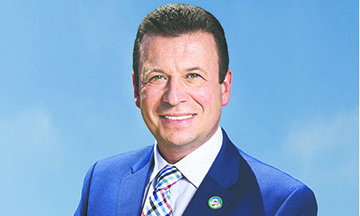
Make Change Stick by Holistically Empowering Others
Change is the only constant. People do not mind change, but they do resent efforts to change them against their will. By the same token change cannot occur if no sense of urgency is shaped, and if “what ought to occur” is not atomized at all levels of an organization or a community, change remains an esoteric concept. Therefore, change management comprises all those intertwined communication activities methodically implemented to promptly engage the newly re-profiled organization into the development and adoption of a new culture and mental models.
We need to consider the broader view of how change may be imperceptible in the early stages.
While elements of the old culture will initially be prevalent, aggressive steps need to be taken to create a new culture capable of superseding the old culture. In managing change, elements and concepts of organizational learning should be immediately applied to mitigate the detractors of change, hence, avoiding that celebration of the success of change occurs prematurely.
The organization, at all levels, ought to recognize the validity of such an approach, its existence, and its benefits when a conscious decision for this integrated strategic approach occurs.
This condition triggers a sense of urgency to embrace change. Management ought to ensure that the urgency and the motivations behind the rationale of enacting change do transcend the mere history of financial losses or gains.
This aspect ensures that an organization’s lack of a cohesive strategy aimed at dealing with shifting global dynamics refrains from embracing a false sense of security afforded in the current environment, at the detriment of the dynamics that may be present in the future.
Otherwise, the resistance to depart from a state of homeostasis will remain salient. In other words, that sense of equilibrium is the ground for the solutions of today becoming the problems of tomorrow.
Management is about letting go of everything but tomorrow, and change management itself is all about tomorrow. The agent of change must act cohesively and coherently, but also decisively.
Sometimes, change cannot occur incrementally, and therefore it needs to occur as an encompassing and conjoined action through the empowerment of all individuals in the organization.
Stakeholders can perceive an agent of change with reservations, but by the same token, they can view inaction and indecisiveness with debilitating anxiety, and consequentially turn into detractors of change. Therefore, the agent of change understands that change management includes those actions governing the transformational aspects of the changes.
The agent of change maintains actions cohesive with the change of management archetype of “Setting Expectations > Changing Attitudes > Empowerment” to overcome preconceived schemas and mental models.
Consequentially, it is fundamental that the agent of change shapes how dissonance occurs, or dissonance will shape the agent of change.

























